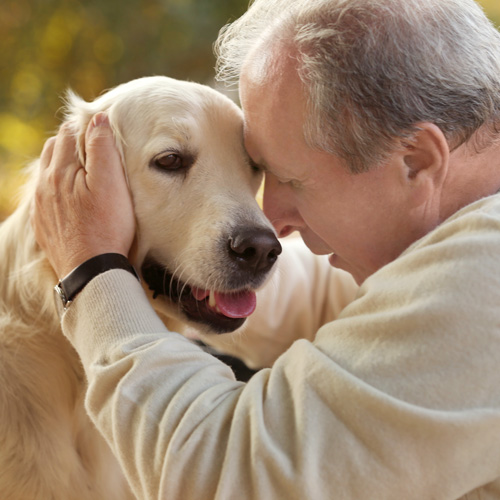Last Updated on 12 months by Dr Alisha Barnes

How are Senior Dogs Different
Adult dogs are similar to senior dogs, although they tend to be slower and less mobile. A healthy older dog’s mood tends to stay the same as an adult, however unhappy or sickened senior dogs may show indications of discomfort or worry. This can be observed in a lack of excitement: reduced tail wagging, fewer movements, and a lesser interest in playtime.
Many senior dogs prefer soft surfaces, like beds or furniture, to hard surfaces like floors or concrete. This is because the hard surfaces can be uncomfortable and difficult for them to walk on.
If your senior dog no longer gets enthusiastic about physical activity and/or appears to quit prematurely, it’s probable that they’re suffering from normal deterioration or pain.
Yellowing teeth and tooth decay, arthritis in bones and joints, the deterioration of the senses (loss of sight, smell, sound, and taste), and incontinence are all examples of age-related decline.
Pain, on the other hand, comes in a variety of forms. Arthritis, bone spurs, herniated discs, and other age-related diseases are all common causes of pain. Pain symptoms or pain-related behavior can sometimes be caused by an accident or injury and necessitate immediate medical veterinary treatment.
Our dogs age just like humans. This is sometimes a slow and gradual process, especially if we’ve had lengthy relationships with our canine companions and acquired them at a young age. Many pet owners employ the “seven-year rule” as a method to determine their dog’s age. However, veterinarians and pet chiropractors discourage using this age estimator since it isn’t a true indication of your dog’s age, health, or physical and mental capabilities.
Large dogs tend to age faster than small ones. The pace at which a dog ages is determined by their weight and size, with heavier dogs aging quicker than smaller dogs. A veterinarian is the best person to evaluate your dog’s age since she will assess your dog using a variety of measures.
Keep in mind that age isn’t always a good indicator of vitality or ability; each dog is unique, and some dogs appear to be less affected by aging than others. However, generally speaking, senior dogs are dogs within the last estimated 5 years of their breed’s standard lifespan.
How can a pet chiropractor help my senior dog?
The main goal of chiropractic care for senior dogs is to reduce pain and improve their quality of life. Many pet owners don’t realize that their older dogs may be in pain. Just like humans, as our dogs age, they can experience joint stiffness and degenerative changes that lead to pain.
A pet chiropractor will conduct a thorough examination to determine where in the body there may be misalignment, imbalance, degeneration, or pain. Your pet chiropractor’s goal is to provide gentle treatment that helps to move bones and ligaments into the most comfortable place possible in the body. This can help to alleviate nerve pain, back pain, muscle pain, mental fog and disorientation, and a variety of other symptoms that are common in senior dogs.
Chiropractic care has many benefits for dogs, both young and old. For senior dogs, chiropractic care can help to reduce pain and improve their quality of life. It can also help to improve mobility and flexibility, which can be especially helpful for older dogs who have a harder time getting around. Additionally, chiropractic care can help to improve mental clarity and focus, which can be beneficial for senior dogs who may be experiencing some cognitive decline.
At Your First Appointment
When you bring your dog in for pet chiropractic care in the Boulder, Broomfield, Windsor and Fort Collins, CO area, you can expect your expert dog chiropractor to be gentle and kind when examining your furry friend. At Tails Animal Chiropractic Care, we are animal lovers, first and foremost. This means that your best friend will be examined with the utmost care and attention to ensure that they feel comfortable and safe.
Your expert dog chiropractor may find that x-rays or other digital imaging technology is required to help identify the source of your dog’s discomfort, or better understand their symptoms. If this is the case, you may receive a referral to visit another center or your veterinarian, or imaging may be carried out in the office.
Once your expert dog chiropractor has identified the source of your senior dog’s symptoms, they will begin treatment with your permission. This may include a variety of manual (hand) manipulations, an adjustment, or other kinds of care. Care will only be carried out with your consent, and you will be provided a full explanation of the process as it is being carried out.
Schedule Your Consultation
If you think your senior dog may benefit from pet chiropractic care, please contact us today to schedule a consultation. We would be happy to answer any of your questions and help you determine if pet chiropractic care is right for your furry friend.
